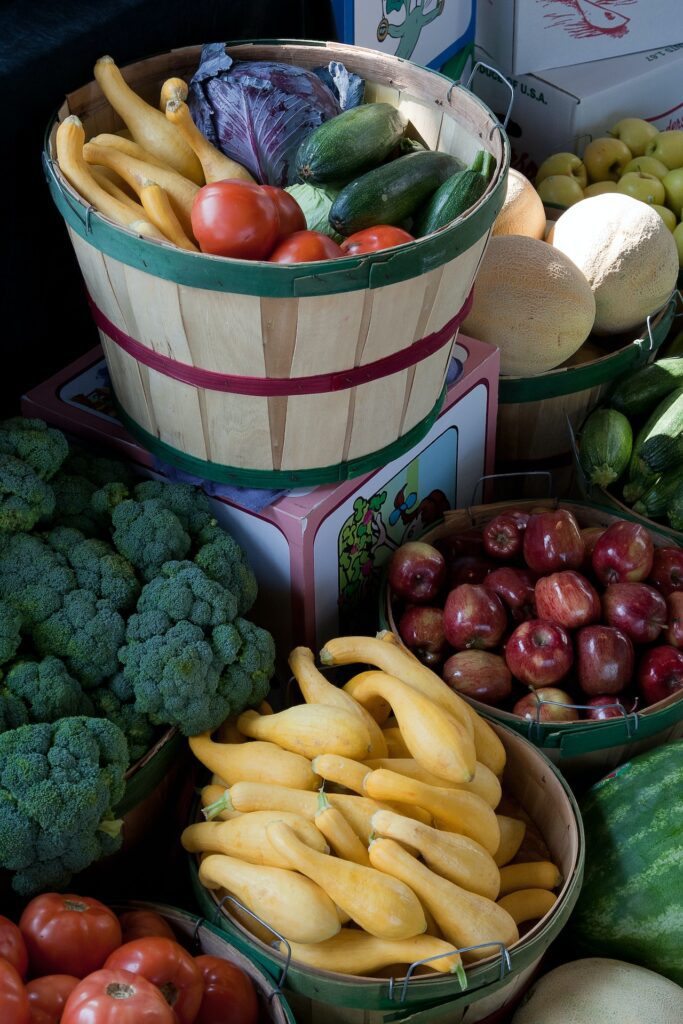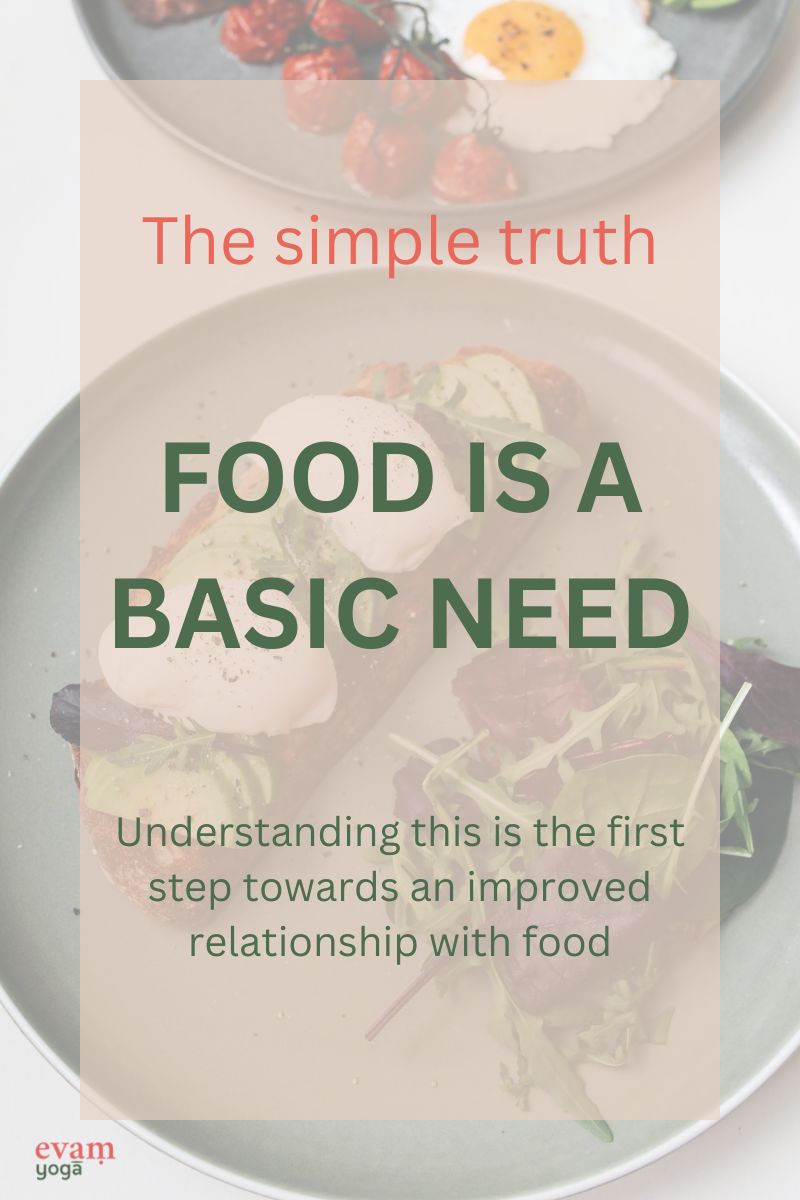Food – it’s good, its bad, it’s complicated!

Insights on navigating and building better relationship with food.
Has labelling, once a useful tool for categorizing, now become a weapon of manipulation that incorporates food into cancel culture by exploiting our cognitive biases? In a bid to manipulate consumer behaviour and create demand for their products, food companies label something “good” today, “great” tomorrow and before you know, it’s already the day after and a new research suggests yesterday’s greatness is today’s “enemy” threatening to wipe out all existence. For example, the low-fat craze of the 1980s and 1990s has now been shown to be largely ineffective in reducing heart disease (Malhotra et al., 2013)*. Is that the end? Probably not. With some time past, the said thing’s antics long forgotten, it makes a comeback, like a fashion statement revamped to be the next seasonal rage. This time perhaps touted as the cure to cancer or the elixir of youth. Meanwhile you are left playing catch up on deciding if “something” is right or wrong, and your relationship status with food reads COMPLICATED.

Mankind has spent centuries mastering the art of preparing food and making it palatable. It’s gone from being just a source of energy to something we seek as comfort and enjoyment. But, somewhere along the way we set ourselves up for a dietary disaster, having gotten the lines blurred in the name of convenience and consumerism (Pollan, 2008)*. Additionally, the wealth of knowledge available on nutrition and diet, has led to a sense of overwhelm. This is especially true when combined with conflicting information and the bombardment of marketing messages from food companies.
Food is a basic need for the functioning of our body, just like air. Understanding this simple truth is the first step towards improving our relationship with it. Being mindful, introspective and making enquired, informed choices can certainly put us on the right path. This includes understanding the nutritional value of different foods and the importance of a balanced diet (Dhurandhar, 2020)*. A balanced diet is essential for good health, which should include a variety of food groups such as fruits, vegetables, whole grains, lean proteins, and healthy fats. It is also essential to understand that there are no “good” or “bad” foods. Rather, it is the quantity and frequency of consumption that determines their impact on our health.

We also need to consider the environmental impact of our food choices and the virtues of locally grown and organic foods (Smith-Spangler et al., 2012)*. Locally grown foods offer several benefits, including reduced carbon footprint, support of local farmers, and fresher produce. Exotic foods are exciting and provide an opportunity to add variety to our diets, but it is important to ensure that they are sourced responsibly and are not harmful to our health.
I am no expert on diet or nutrition, but choose to share insights based on personal experience of navigating a complex relationship with food in the past. From seeking food as comfort to completely negating certain food groups, I have learned through trial and error on how to find a balance in my relationship with food. It has taken patience, compassion, and learning to listen to my body to realise, with food, there is no one blanket rule that suits all and every individual need is different. I do not condone indulgences nor do I obsess over every calorie intake. Instead, I appreciate my body with wholesome nutrition and celebrate it with a mindful serving of indulgence. This is my way, and I hope to share my insights with you to help you improve your own relationship with food.
In the coming articles we’ll look into the several categories and what encompasses a balanced diet. We will also discuss diets that are scientifically backed, and the balance of macro and micronutrients required by our bodies. Among other things, we’ll certainly talk about the “bad” foods and if it’s too much caution or uninformed choices that is making us sicker. It’s important to note that these articles are not intended to replace professional advice from a registered dietitian or nutritionist. Rather, it’s intended to provide a starting point for building a better relationship with food based on evidence-based information and personal experience.
References
Malhotra, A., et al. (2013). “Saturated fat is not the major issue.” British Medical Journal, vol. 347, no. 1, pp. 1-3. (The authors argued that while saturated fat has long been demonized as a major contributor to heart disease, the scientific evidence linking it to heart disease is weak and that sugar and refined carbohydrates may actually be the real culprits. They called for a shift in dietary recommendations away from low-fat diets and towards a focus on real, whole foods.)
Pollan, M. (2008). In Defence of Food: An Eater’s Manifesto. New York: Penguin Press. (In his book “In Defence of Food: An Eater’s Manifesto,” Michael Pollan argues that in the modern Western diet, people have become focused on individual nutrients and macronutrients rather than whole foods. He suggests that this has led to a confusing and often contradictory set of dietary guidelines, and that people should instead focus on eating whole, minimally processed foods. Pollan also criticizes the food industry for promoting highly processed products and using marketing to create confusion and false health claims. His message is one of simplicity: “Eat food. Not too much. Mostly plants.”)
Dhurandhar, E. J. (2020). “The Obesity Paradox: Time to Reconsider Our Relationship with Food.” Mayo Clinic Proceedings, vol. 95, no. 1, pp. 44-49. (An excerpt from the abstract of the article, “In this article, I propose that we reconsider our relationship with food and adopt a more nuanced approach that recognizes the complex interplay between diet, lifestyle, and health. Rather than demonizing or idealizing certain foods, we should strive for a balanced and diverse diet that meets our nutritional needs and supports our overall health.”)
Smith-Spangler, C., et al. (2012). “Are organic foods safer or healthier than conventional alternatives?: A (Excerpt from the article, “The health benefits of organic foods are uncertain. In the few studies examining clinical outcomes, the health differences between organic and conventional foods are minimal, as the effects of diet are likely to be dwarfed by other lifestyle choices, such as avoidance of tobacco, exercise, and the avoidance of excessive alcohol consumption. However, consumption of organic foods may reduce exposure to pesticide residues and antibiotic-resistant bacteria.”)
Image Credit : Kevin Malik; Daniel Reche; Mark Stebnicki; Polina Tankielvitch
Image Source : Pexels
